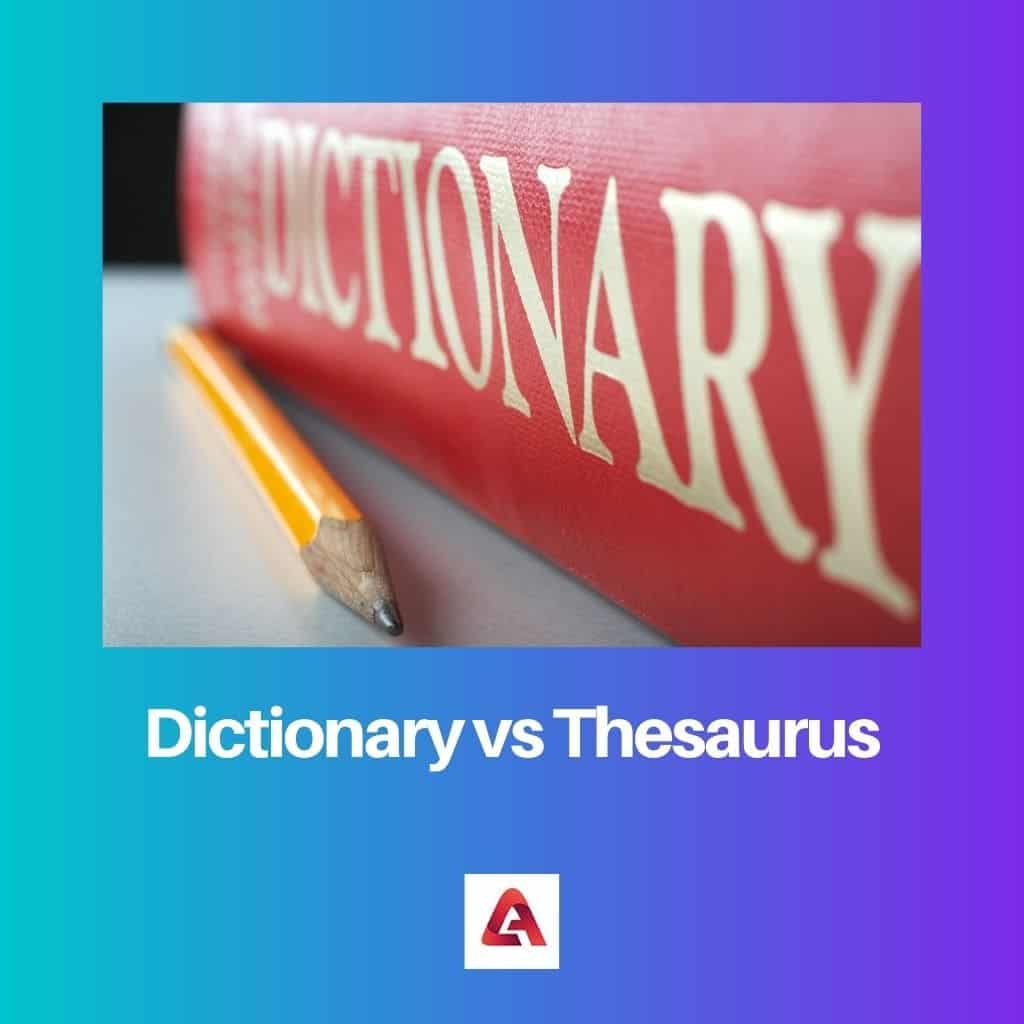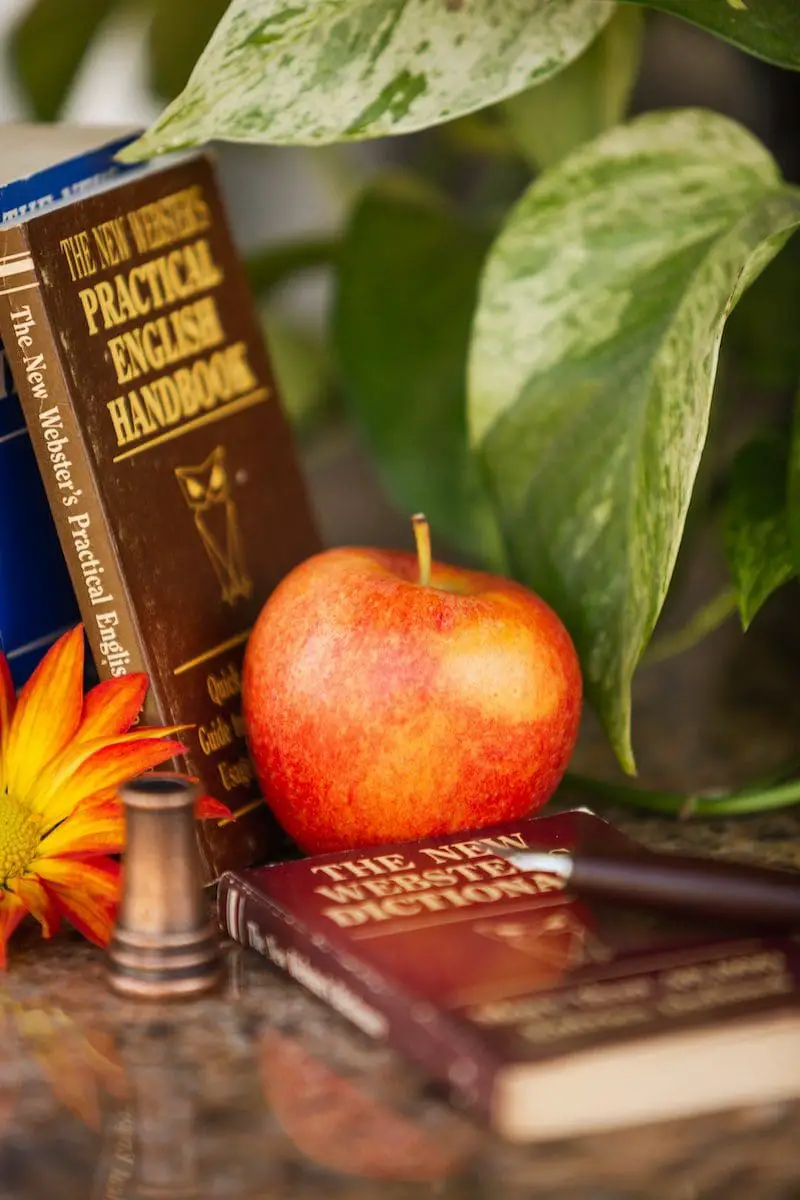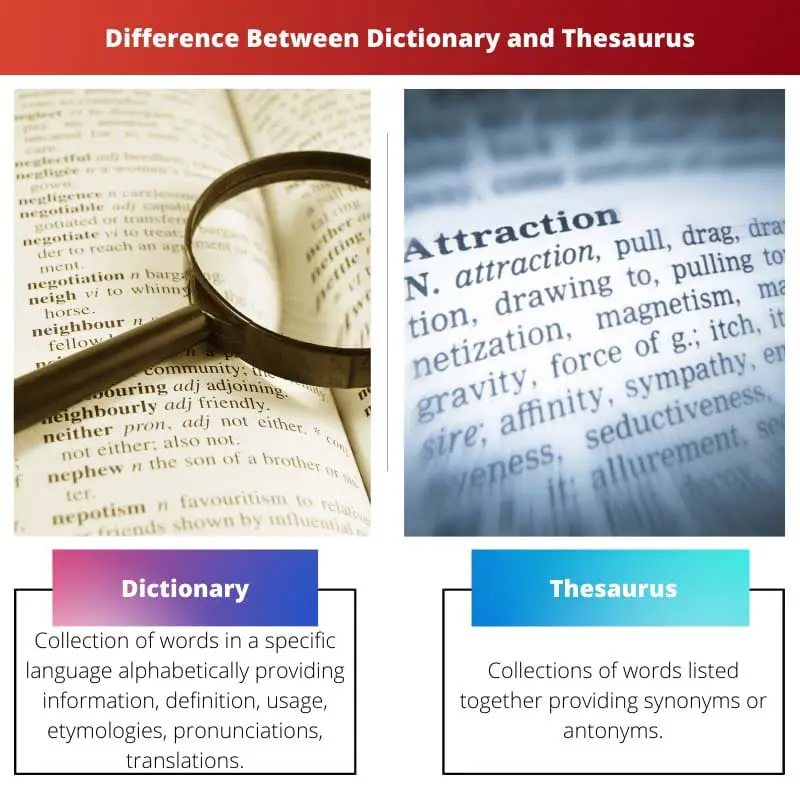Dictionaries and thesauri are books with various words listed, giving us additional knowledge about them. They are tools that help people gain external knowledge and enhance it.
That is the only similarity they have; the rest of these books function and have very different work from each other and can be differentiated on several grounds.
Key Takeaways
- A dictionary is a reference book that contains definitions, pronunciations, and sometimes etymology and usage examples for words in a language; a thesaurus is a reference book that groups words with similar meanings, providing synonyms and antonyms.
- Dictionaries clarify meanings, spellings, and usage of words; thesauruses are used to find alternative words with similar or opposite meanings.
- Dictionaries are organized alphabetically; thesauruses may be organized thematically or conceptually.
Dictionary vs. Thesaurus
The difference between a dictionary and a thesaurus is that a dictionary can help one know more about that word and how it can be used in sentences. In contrast, a thesaurus only gives synonyms or antonyms to a particular word.

A dictionary is a tool people use to find information, definition, usage, etymologies, pronunciations, translations, and much more information regarding a particular topic. It is used by tourists, translators, and language learners to help them build up their knowledge regarding a particular language.
On the other hand, a thesaurus is used by people to increase their vocabulary as they present synonyms and antonyms regarding any word. They list all the words that have a similar meaning or little essence from the original word.
Comparison Table
| Parameter of Comparison | Dictionary | Thesaurus |
|---|---|---|
| Definition | Collection of words in a specific language alphabetically providing information, definition, usage, etymologies, pronunciations, translations | Collections of words listed together providing synonyms or antonyms |
| First Published | In 2300 BCE, in modern Syria | 1852 peter mark |
| Arranged | Arranged alphabetically | Arranged alphabetically or conceptually |
| Words | Oxford Dictionary has 500,000 words | The largest thesaurus has more than 920,000 words |
| Usage | Used my more people | Used by less amount of people |
| Language | States what a word means in other languages | Only in one language |
What is Dictionary?
A dictionary is a collection of words in one or more than one specific language, which is listed in alphabetical order. It provides information, definition, usage, etymologies, pronunciations, translations, and more information regarding the required topic.
It also further describes the word as to which parts of speech it is. The dictionary also helps us know about the origin of the actual word.
The dictionary can also be an etymological or grammatical tool for knowledge of words and languages. A dictionary helps a person learn one’s language along with other languages as it gives a huge grammatical knowledge to one.
They are used by tourists, translators, and language learners to enhance their knowledge of words.
The dictionary can further be classified under two types, namely- general dictionary and specialized dictionary. The specialized dictionary includes a collection of words from a specific topic rather than a complete book of words from all fields and genres.
And the general dictionary is the regular dictionary that one is used to, which comprises all the words and is not divided into any category.
Apart from these two, there are also a few other types of dictionaries found these days; they are- bilingual dictionaries (translation), defining dictionaries, historical dictionaries, collegiate dictionaries, electronic dictionaries, reverse dictionaries, visual dictionaries, phonetic dictionaries, satirical dictionaries, and many more.

What is Thesaurus?
A thesaurus is a book consisting of a list of words arranged alphabetically, and their synonyms and antonyms are available. It is also known as a synonym dictionary.
Writers and poets use it to find a suitable word to express their ideas. The term “thesaurus” was first used in 1852 by peter mark Roget for his Roget’s thesaurus.
Unlike the dictionary, the thesaurus includes no information, definition, usage, etymologies, pronunciations, translations, etc. It only sincerely lists all the synonyms regarding the words and certain times, their antonyms.
The thesaurus gives ample information regarding the word in similar connotations. Synonyms listed either means similar to the original word or give similar essence to the original word at certain times.
Thesaurus is used to avoid repetition of words, as using similar words in a sentence can get too repetitive and boring, and readers might lose an insert from the text. Hence it is one such tool used by authors or poets to make their text more flawless and grab the reader’s attention.

Main Differences Between Dictionary and Thesaurus.
- A dictionary was first published officially in 2300 BCE in modern Syria, where thesaurus was published much later in 1852 by Peter Mark.
- A dictionary is a collection of words arranged alphabetically where information, definition, usage, etymologies, pronunciations, translations, and much more information regarding a particular topic. However, a thesaurus is a collection of words listed together, proving their synonyms and antonyms.
- The words in a dictionary are arranged alphabetically, whereas the words in a thesaurus are arranged alphabetically or conceptually.
- The Oxford Dictionary comprises around 500,000 words, whereas the largest thesaurus has more than 920,000 words.
- More people use a dictionary, whereas a thesaurus is recognized and used by fewer people.
- A dictionary also helps one know about the word in other languages, whereas there is no such additional information in the thesaurus; it lists the synonyms and antonyms in the same language.




